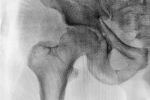The decision to undergo surgery isn't something you should take lightly. In the case of hip labral surgery or arthroscopy, some patients may need to take some time off of work for recovery; others may even need physical therapy, which means an extended period of rest.
The patient’s present condition also needs to be taken into account. Is arthroscopy the right orthopedic procedure for their condition? Are they physically and mentally prepared for surgery and physical therapy if necessary? Will their health allow them to bounce back quickly after the surgery? Then, there are the more practical questions about insurance, post-surgical care, and the pros and cons of hip labral tear surgery.
Patients must weigh these factors carefully before making a decision. To this end, let’s discuss the advantages and disadvantages of the procedure in this article.
What Are the Pros and Cons of Hip Labral Tear Surgery?
Let’s begin with the pros of hip arthroscopy:
1. First, you’ll have less pain.
While there is no guarantee that patients who undergo labral tear surgery will never experience pain in their injured hip again, you can expect a considerable reduction in your daily pain and muscle tightness after the procedure. Of course, there will be discomfort post-surgery and during the typical six-week rest and recovery period. But once you're past that, you should no longer experience debilitating pain in your hip or thigh muscles.
2. You can regain a wide range of motion in your hips.
The point of arthroscopy is to repair the damage to the labral tissue. Surgeons can do any or a combination of the following:
- Repair - stitching the torn tissue together
- Reconstruction - reconfiguring the damaged tissue using healthy tissue from a donor or another part of the patient’s body
- Debridement - removing or cutting off a piece of the labral tissue pinched out of the hip joint
These repairs can bring back the strength and function of the affected hip joint. And since a successful surgery also alleviates the pain, you’ll be able to move more freely and do the things you did before the pain and tightness limited your movements.
3. Your hip joint won’t be at risk of further damage.
Physicians usually show patients different options for treating hip injuries. Sometimes arthroscopy is just one of the options. But there are also times when it is the only option, which happens when there’s a high risk that the damage to the labral tissue will worsen if the patient delays surgery or refuses to dial down on their active lifestyle. In these cases, it would be best for the patient to have the surgery as soon as possible to prevent irreparable damage to their hip joint.
4. Arthroscopy is a safe, minimally-invasive surgical procedure.
Most people are scared of going through surgical procedures, which affects their decision to have hip surgery. Such fear is reasonable. However, hip labral tear surgery is minimally invasive and performed in a clean, safe, and controlled environment. Surgeons will only make two or three small incisions around the hip area, so patients won’t have to deal with a large wound on top of post-surgery physical therapy.
Physicians can discuss more unique benefits to each patient based on the nature of their injury, health status, and lifestyle. However, as with any surgery, patients may experience some cons before enjoying the long-term benefits.
Below, we’ve listed the cons of hip arthroscopy:
1. The recovery period is long.
Post-surgery recovery for arthroscopy patients is typically six weeks long. Patients are expected to rest and avoid movement for the first week to allow the surgical wounds to heal. After that, however, they must gradually increase their activities with each passing week so that the joint can recover as much range of motion as possible. Physical therapists will recommend exercises to encourage a smooth interaction of the hip joint and the newly-repaired labrum.
For people who are used to an active lifestyle or whose livelihoods depend on their physical agility, it will be challenging to limit their activities for a month and a half.
2. There's a risk that the labrum will tear again if a patient doesn't follow recovery protocols.
Many don't realize that the success of an arthroscopy doesn't hinge on the procedure alone. The recovery period is just as important – maybe even more so. For example, if patients start moving and putting weight on their hips prematurely before the repaired tissue can fully heal, they can aggravate and worsen their injury. As a result, they'll feel more pain and may need another surgery soon after.
Patients must be proactive in their recovery, which you must understand before having an arthroscopic procedure.
3. Labral tear surgery is not ideal for obese and muscular people.
The success of hip arthroscopic surgery is highly dependent on a surgeon’s skill and experience. As such, patients who are overweight may not be ideal candidates for this procedure because the mass of soft tissue in the hip area would make it difficult for surgeons to access the labrum. They may have to make larger incisions if they intend to do a debridement, which can result in bigger post-surgical bruising. Muscular patients also pose a similar challenge to orthopedic surgeons.
4. There is a risk of nerve damage.
While the potential for nerve damage is present for every hip replacement procedure, anterior labral tear surgery is particularly risky because the surgical site is near the lateral femoral cutaneous nerve (LFCN). It runs from the L2 and L3 of the spinal column and passes through the pelvis (typically behind the inguinal ligament), down to the outside of the thigh.
The LFCN is a large, sensory nerve. If it gets compressed as a result of the procedure, you’ll feel a burning or aching sensation along your thigh. In worst cases, patients can experience severe pain at the lightest touch of their thigh.
Get the Best Outcomes at the American Hip Institute
If after learning the pros and cons of hip labral tear surgery and you decide that this is your best option, the next step is to find an orthopedic specialist whom you can trust with your procedure.
Dr. Benjamin Domb is an experienced orthopedic surgeon for hip injuries specializing in hip arthroscopy. A graduate of Princeton and John Hopkins School of Medicine, he currently runs a practice in Chicago where he tends to athletes and patients who travel from around the world seeking his medical advice and treatment for hip injuries.
You can book an appointment with Dr. Domb by reaching out through our Contact Page or calling (833) 872-4477.

